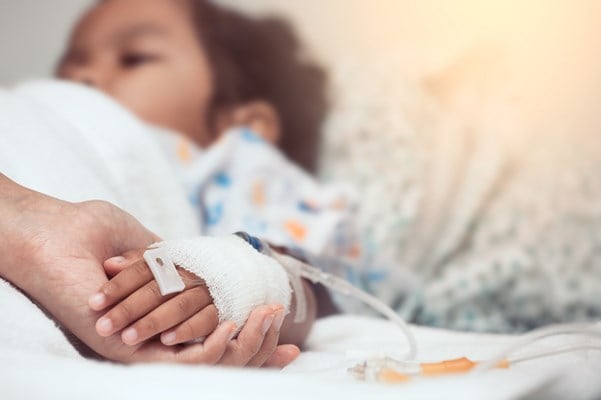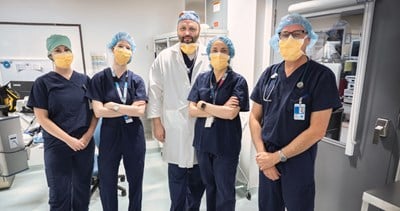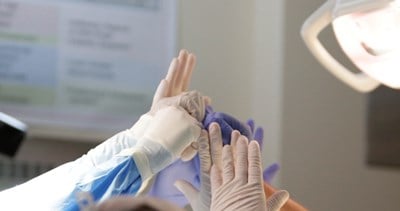
What to expect on surgery day
This page will help you and your child understand what will happen on the day of surgery.
For parents navigating this important day, tips and advice can be found below. You can also learn how to treat your child’s pain once the surgery is over.

Learn about general anesthesia on AboutKidsHealth
Your child's stomach must be empty before a general anaesthetic. Follow these instructions to help your child get ready for an operation, test or treatment. Read more about General Anesthesia on AboutKidsHealth.
Plan to be at the hospital at least 2 hours before your child’s surgery. Please remember to bring your child’s health card.
You will go to the Pre-Operative Care Unit on the second floor for registration, where they will check you in and direct you to your next step. To get there, take the yellow Atrium elevators to the second floor and look for the sign that reads “SDAU/PACU”.
Next, your child will be weighed, have their vital signs taken, their current level of health assessed and their chart reviewed.
The nurse will give you instructions about how to preform a pre-operative bath (pdf) and provide the necessary supplies, including a special pair of pajamas and slippers to wear in surgery. Once your child has changed into them, they may return to the playroom until it is their time to go for surgery.
Watch our video on how to preform a pre-operative bath using wipes.
Your child's anesthesiologist will come and meet with you before your child goes to surgery. They will talk to you about the options available to help your child relax before going into the operating room and fall asleep for the procedure, and ways to manage their pain during and after their surgery.
Someone from the surgical team will come out to speak with your family. A nurse will also come out to do their pre-operative assessment, which includes a nursing and surgical safety checklist. The surgeon may be available to see you before surgery. Child life specialists are also available to patients and families.
After your child goes in for surgery, you will be directed to the Surgical Waiting Room right beside the operating room playroom.
You can wait here while your child is in the operation; this is a good time to have a snack and something to drink to ensure you have energy to look after your child when they wake up. It is best to check in with the volunteers when you get there so they can notify you when your child is ready to see you after the surgery.
See Visiting a Patient for the latest guidelines and policies on visiting patients after surgery.
After your child's surgery
Post Anaesthetic Care Unit: Visiting your child in the PACU
Learn what to expect when you visit your child in the post-anaesthetic care unit (PACU). Includes advice for visitors and cell-phone use.
Pain after an operation: Taking care of your child's pain at home
Most children have at least some pain after an operation, which is called post-operative pain. Learn about relieving a child's post-operative pain at home.
Post-operative and post-anaesthetic care: Caring for your child at home
A general anaesthetic is a special medicine which kept your child asleep during an operation or procedure. Learn how to take care of your child at home after the procedure.
Pain at home: Taking care of your child
Children do not all feel pain the same way. You can find out how much pain your child is in by asking and by observing their behavior.
Pain: How to talk to kids about their pain
Learn about how to talk to your child about how much pain they are feeling and some strategies to help them cope with pain.
Learn about pain relief medication and how to administer it, including patient controlled analgesia.
A comfort kit contains toys and other distracting objects to help your child deal with painful tests or procedures.
A fever can be a sign that the body is fighting an infection. Learn how to properly care for a baby, toddler or child with a fever.
More in this section

Review this important information to help prepare for surgery.

It's important to follow guidelines for stopping eating and drinking before surgery. Visit this page for more information on what to pack and how to prepare.

